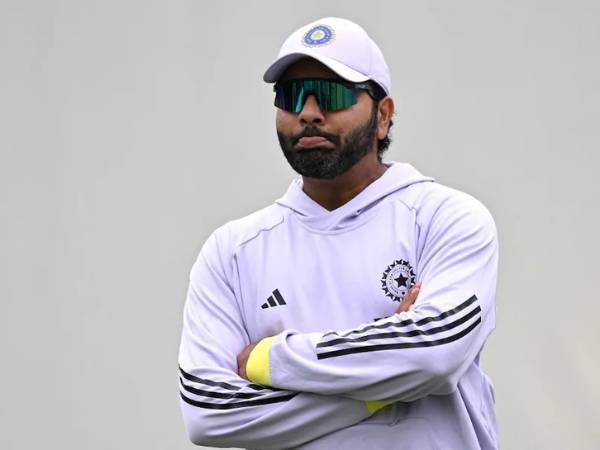Is Rohit Sharma the sole culprit for India's underperformance in the Border Gavaskar Trophy?
It has been visible from the start of the series that India’s underperformance in the Border Gavaskar Trophy has not stemmed from any sole individual. From the first innings in Perth to the opening innings in Sydney, the Indian batting order has collectively faltered. Undoubtedly, there have been some notable turn-ups, a few of which combined led to the victory in the opening Test, but they have not been significant enough to mask the great Indian struggle down under. Now, with the batting order staging yet another collapse on Day 1 of the final BGT fixture, it seems like all the chaos ahead of the Sydney Test was more of a distraction from how underwhelming India has performed across the five-match Border Gavaskar Trophy.
India's struggle in the Border Gavaskar Trophy goes beyond just Rohit Sharma
The Sydney Test, the final fixture of the Border Gavaskar Trophy, opened to significant drama, all on the part of the visitors. The days leading up to the match were filled with shocking revelations, from dressing room leaks to the chair overhaul within the camp, to the news of disintegration in the team. Some of the updates were verified when Jasprit Bumrah came out for the toss on Friday. The BCCI had made no official announcements to inform the public of an update as notable as skipper Rohit Sharma dropping out of the final Test. However, Jasprit Bumrah, also the captain at the time of India’s victory in the Perth Test, explained that Rohit had “opted out” of the match. The official information was limited to that, but the behind-the-scenes scenario signals the sacking of the 37-year-old.
It’s no news that Rohit Sharma has been consistently underperforming with the bat in the Border Gavaskar Trophy, which he joined late. Staging a remarkable shuffle, Sharma first settled in the middle order to give an opportunity to KL Rahul to flourish at the top of the order. However, unable to recapture his form, Rohit Sharma made a desperate return to the top order in the Boxing Day Test, a procedure that saw the young Shubman Gill losing his place in the team. The captain’s call to drop the young gun as an indirect attempt to travel up the order met severe criticism. The Boxing Day Test unfolded to more criticism of Rohit Sharma, the captain, with clueless field setups and the rotation of bowlers leading to extra pressure on Jasprit Bumrah, India’s only guaranteed match-winner down under.
Across the five innings that Sharma batted in the Border Gavaskar Trophy, he managed only 31 runs at a glaringly unimpressive average of 6.20. All this led to the skipper missing out on the Sydney Test. However, with the performance of the Indian batting order on the opening day, it was reiterated that Rohit was not the sole issue that India was suffering from.
Virat Kohli, one of the seniors in the team, frustrated onlookers with yet another nick off an outside-the-off-stump delivery. The former Indian captain, who got all the “Mr. Fix It” chatter tracing back to him, is incapable of dealing with his “nick it” issue. While not in the run-scoring, Kohli has been eerily consistent in the type of dismissals he has staged in the Border Gavaskar Trophy. Moving ahead, Shubman Gill, whose exclusion from the Boxing Day Test caused a lot of hue and cry, has not scored past 40 in overseas conditions for well over a couple of years now. KL Rahul, opening with a lot of promise in Perth, has been impactless in the concluding phase of the series. While Nitish Kumar Reddy and Yashasvi Jaiswal have impressed lately, sole fighters seldom win a team sport.
A lone warrior like a Bumrah, a Reddy, or a Jaiswal winning a Test match for their team is an exception and not a rule. For the Indian management to be counting on such exceptions is an entirely debatable issue. The coaching staff, headed by Gautam Gambhir, should oversee what’s causing all of their batters to fail collectively, innings after innings. A batter getting out in the same manner in every match is a problem that needs deeper focus on problem-solving. Pointing fingers and making bold decisions to deliver a stern stance may work momentarily. However, for India to keep up their reputation in the format, a collective effort from all the players and the support staff is the need of the hour.
